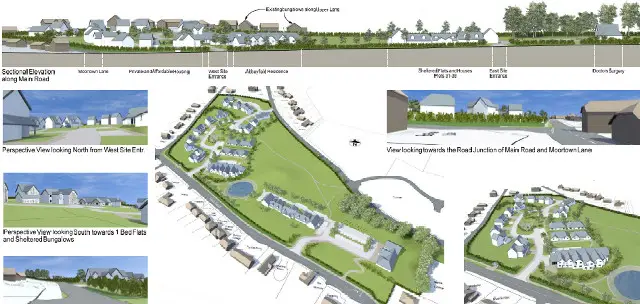Following yesterday’s news that the Blanchard’s Field housing development application had been refused by planners, this in from Cllr Seely in this own words. Ed
Commenting on the failure of the Blanchard’s Field development to receive planning permission from the Isle of Wight Council, Bob Seely, Councillor for Central Wight, said:
“People power has won the day. This is a big victory for the overwhelming majority of the residents of Brighstone who wanted to protect their village. The development was far too big and there were too many unanswered questions about the project, which the Council was right to highlight. I am delighted with the decision.
“The development raises a lot of important issues, not only for Brighstone but for local communities across the Island.
“First, development; in less than 30 years Brighstone has gone from being a small village to a big village. A couple more developments such as Blanchard’s would have turned it into a small town. Just building more and more isn’t the route to prosperity. In many ways we are no better off than we were 30 years ago, and indeed in some ways worse off, with greater pressure on social services and health care. Development should mean attracting jobs, not just concreting over more land. We need a more sustainable and frankly more intelligent means of development. We can’t just continue to build, build, build.
“Second, localism; I hope Island developers will learn a lesson. Developers need to talk to residents and develop plans in conjunction with them. I felt that the developer’s team here saw the people of Brighstone as a problem to be avoided. Press releases and statements were issued presenting the scheme as if it was a done deal, with residents feeling they were being bounced into accepting a plan which was too big for the village. Localism means listening to locals.
“Third village Plans. Parish Councils throughout the Island need – as a matter of urgency – to ensure that they have village plans in place. These plans will help prevent speculative development and ensure that the collective voice of residents is taken into account when planning decisions are made. Brighstone didn’t have a plan and it was more vulnerable as a result. I am delighted that the village plan in Brighstone is now being discussed and developed. All rural villages/parish councils should have a village plan. These plans take time and there is a financial cost, but we all need them. Don’t leave it too late until you are threatened by developers.”
Image: © Rainey Petrie Architecture





